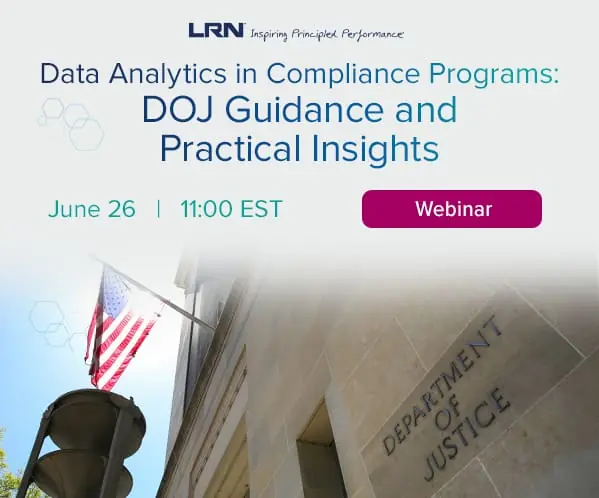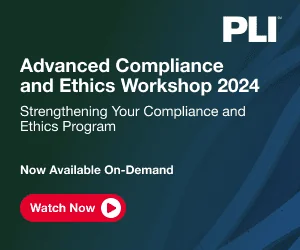The Impact of BPM on Organizations
Regulations and compliance are some of the most important topics of discussion in the marketplace today, yet dozens of companies are hit with fines simply because they are unable to prove they are in compliance. Business process management (BPM) is enabling companies to more adequately manage their vendors, employees and C-suite, and it assists with cost avoidance, efficiency, risk management and compliance – all of which are topics that belong in the boardroom.
If you talk to any process management or BPM vendor, they are likely to tell you that one of their biggest challenges is access to the C-Suite. This is partly due to the way vendors historically pitch their solutions as technology and features, leading them to be seen as just another IT solution for management to consider. However, it is also because many executives still fail to understand that process management is actually a valuable tool to help them and their organization perform better and mitigate risk.
A number of media publications have reported that regulators across the globe are becoming more aggressive in their inquiries and are further increasing fines. In the United States alone, Wells Fargo was fined over $1 billion for failed compliance and Bancorp fined an additional $600 million for systemic deficiencies in its anti-money laundering monitoring systems, which resulted in gaps and “a significant amount of unreported suspicious activity.” Meanwhile, a U.K.-based utility company was fined simply because they were unable to prove that they were operating in a compliant manner. Of course, the automotive industry is also impacted, as many manufacturers are facing actions against them for emissions failings.
I would suspect that, in almost all of these scenarios, at least one individual within the organization would have suggested at some point introducing a process management system. In my experience, the chances are that when this individual asked for a budget, they were told it was an unnecessary spend or that it wasn’t helpful for quarterly reporting.
It is true that an effective process management system can take time to deliver full value, and hence stay on the cost side of the equation for some time. But whatever the costs, I have never heard of a process management system taking years to return value or costing close to 5 percent, never mind 10 percent of the sort of fines now being handed down.
It can be concluded that if fiduciary, regulatory and compliance issues are a boardroom issue, surely so must be the responsibilities for the processes that deliver or support them.
However, process management is not only about risk management and cost avoidance. It is also about revenue generation and the creation of new innovative business models.
In this instance, I’m unaware of many C-level executives who delegate the role of strategy development and business models to mid-level managers. The act of investigation, suggesting and executing plans can be carried out by others, but the responsibility usually sits with the board. New models and strategies inevitably mean rearranging and managing processes.
This is not to suggest that every C-level executive should be an expert in process or involved in every aspect of change management. Instead, they need to think about how they discuss process, if they are seen spending time on it and if they ask process-related questions. If they do, everyone in the organization will understand the value or process and prioritize such responsibilities.
One example is how people change their behavior based on what they see and hear from boardroom executives. Several years ago, I was invited to Sudan by a process manager at DAL group, the largest private company in the country. I was asked to deliver a workshop and presentation to introduce value concepts. The audience was intended to be a select group of 30 managers, which ultimately changed after the CEO agreed to send out an email notification to his entire team.
Within the email, the CEO explained why process was important to him and his organization.
“As managers, this should be a fundamental part of what we do every day. The reality, though, is that we get bogged down in day-to-day details and do not detach ourselves enough to look at the reasons why we do things the way we do them and consider doing them differently. We do not manage business processes; we let the processes manage us.”
However, it was not the email that resulted in over 150 mangers to attend on their free weekend – it was the way in which the CEO finished his communication: “I am looking forward to a great session, and I look forward to seeing you there.”
It was not the words that made the difference, it was the action behind the words. When the staff realize that the CEO was spending his time there, they also want to do so. As a result, our boardroom presentation was moved to an auditorium. We also found ourselves with many additional people frustrated that they were unable to join later workshops due to the overwhelming response. The same example is true for expressing the importance of process management from C-level to mid-level management.
In the final analysis, process management is useful for cost avoidance, efficiency, risk management, compliance and a whole host of topics that should belong in the boardroom – however, very few of us do what we should do!
I suggest that vendors and managers alike may find it easier to get executives on board when they switch from a “fear-based” approach to a “greed-based” approach. How many C-level executives are not interested in sales increase, creating new revenue streams, bringing new products or services to market faster, better management of mergers and acquisitions or exploiting new market opportunities? These are all examples to excel a business into exponential growth while protecting from the unexpected.
As a C-level executive, I would suggest that other C-level executives take more involvement into their organizations process management initiatives. Mid-level managers need to promote the positive elements, while vendors focus on the business benefits of process management rather than the features. For all groups, the perfect product to fix your organization’s “pain points” does not exist.



 Mark McGregor is Head of Strategy at Signavio. A former Research Director at leading IT industry analysis firm Gartner, McGregor has an extensive background in enterprise architecture, business process management and change management, having held executive positions with a number of technology companies. Widely respected for his knowledge and views on business change, he is the creator of “Next Practice” and has variously been described as a "BPM guru," a "thought leader" and a "master of mindset."
Mark McGregor is Head of Strategy at Signavio. A former Research Director at leading IT industry analysis firm Gartner, McGregor has an extensive background in enterprise architecture, business process management and change management, having held executive positions with a number of technology companies. Widely respected for his knowledge and views on business change, he is the creator of “Next Practice” and has variously been described as a "BPM guru," a "thought leader" and a "master of mindset." 







